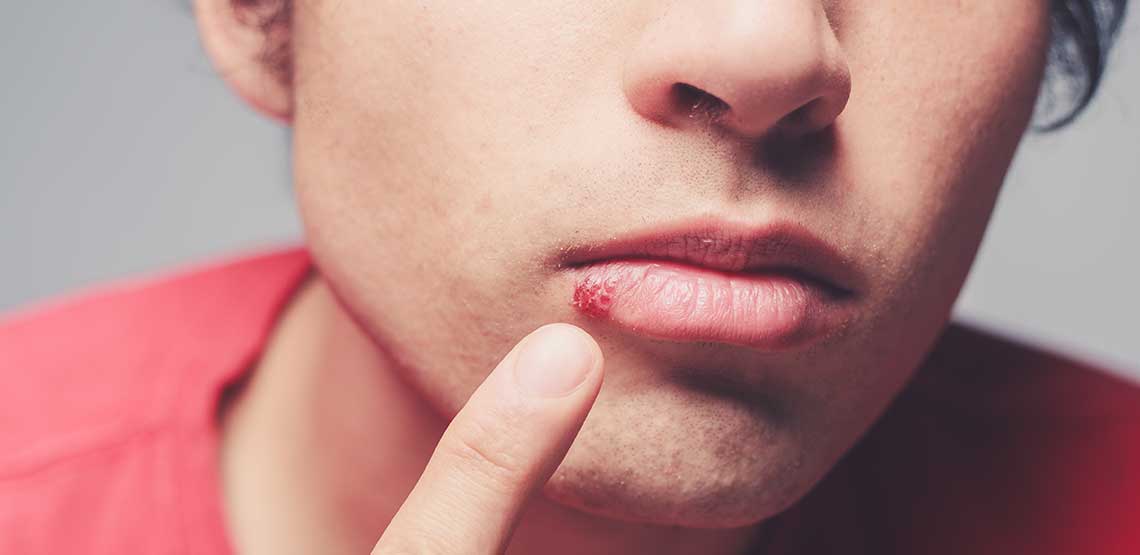What is a Cold Sore?
A common but unpleasant ailment, cold sores will be a reality most deal with at one time or another. Contrary to what the name suggests, they’re not brought on by the common cold; they actually come from an underlying virus. Cold sore symptoms can vary, as can their duration and severity, but at one point or another, they’re likely something you’ll deal with and want to know how to treat.
Before diving into the different types of cold sore remedies that are available, let’s go over what exactly a cold sore is, and what symptoms you should look for.
A cold sore is a small, red, fluid-filled blister or collection of bumps around or on the mouth and lips. Their cause is a very common virus, meaning they’re contagious from person to person and can be easily spread.
Keep in mind, these are a whole different ailment than canker sores (which are also fairly common). Canker sores occur inside the mouth or inner lip, and are treated differently.
Cold sores are unpleasant and can be quite painful. They’ll sometimes go away on their own, and can last a matter of days, or in more severe cases, can linger for weeks and require treatment (we’ll go over different options below.)
Causes of Cold Sores
A common virus, HSV-1, is to blame for cold sores. This virus is closely related to the virus responsible for genital herpes, HSV-2, which is why the sores around your mouth can resemble genital herpes sores. Both viruses can be spread via oral sex.
Other ways the sores are spread are via kissing, using someone’s makeup, toothbrushes, chapstick, or drinking or eating from utensils that an infected person has used. Contrary to what you may have heard, something like sharing a towel or sleeping on someone’s bed who has a cold sore will very rarely give you one, because the virus travels in saliva.
You can unknowingly become infected through one of the above behaviors and may not know it. Visible blisters aren’t always the end result, so it can be difficult to detect in some cases.
As many as 90% of us are living our lives with the virus, so it’s certainly nothing to be overly concerned by. Certain risk factors can make it more likely to pop up and create a cold sore, though. Once you have the virus, it will always lay dormant in your body, but things like stress, a weakened immune system, conditions like eczema, menstruation, infections, or indeed, the common cold, can prompt a flare-up.
Symptoms of Cold Sores
Before you even see an unsightly and irritating sore, the virus will have already begun it’s outbreak. The early symptoms of a cold sore can include tingling and itching around the lip. When you feel this prickling, it’s best to strike early for the best chance of treating it.
Once the blister occurs, it will be fluid-filled for a day or so before bursting. After it bursts and the fluid leaves, it will eventually scab over.
In some cases, a fever, achy muscles, swollen glands, and headache or a sore throat can accompany the blisters. These more severe symptoms are usually associated with the initial outbreak or the first time you have a cold sore, which is also known as the “primary attack."
If you’re suffering from a severe flare-up, call your doctor. They may be able to prescribe treatment. Secondary or recurring infections are often not as severe, unless you have a compromised immune system.
Types of Cold Sore Treatments and Natural Remedies
There are many cold sore remedies that are available over the counter. These options include topical ointments and creams to put on the blister, or pills. Many of these will include an anesthetic which will dull the pain, but not truly heal the cold sore.
You can also apply petroleum to the cold sore to keep it from cracking. Mild painkillers like Tylenol or Advil can also be used to keep pain at bay.
An over-the-counter non-prescription ointment called Docosanol is known to decrease healing time, and is most effective when applied before the outbreak, at the first warning signs.
There is no cure for cold sores, and they’re very common, so don’t be alarmed if you have one. Certainly seek out medical care if they’re causing other symptoms like fevers and aches, or spread to the eye, as this can cause serious complications.
Basic preventative measures include staying well rested, fed, and hydrated, and avoiding stress, staying out of the sun and using SPF chapstick. Be sure to always wash your hands often to prevent spreading as well.
